Postpublished at 18:35 GMT 17 December 2014
You can now watch the BBC's video of President Barack Obama addressing the US, external on Cuban policy changes and vowing to "cut loose the shackles of its past".
The US and Cuba have begun historic talks about restoring diplomatic relations
A US embassy in Havana is being planned, among a raft of measures
Cuban leader Raul Castro and US President Barack Obama both made TV addresses
"These 50 years have shown that isolation has not worked," said Mr Obama
The move marks a dramatic shift in a relationship that has been strained since the Cold War era
US citizen Alan Gross was released earlier from a Cuban prison, while the US freed three Cubans jailed for spying
Tom Geoghegan, Debbie Siegelbaum and Taylor Kate Brown
You can now watch the BBC's video of President Barack Obama addressing the US, external on Cuban policy changes and vowing to "cut loose the shackles of its past".
Alan Gross is scheduled to speak in Washington DC shortly.
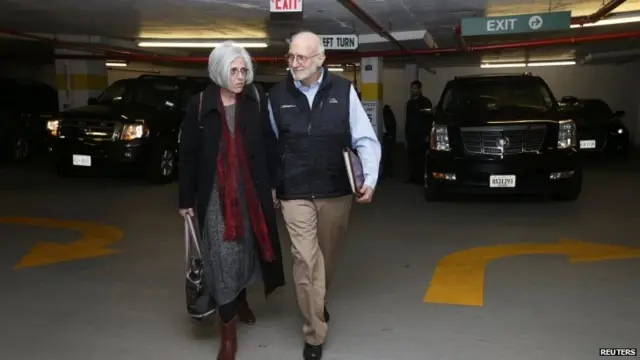 Image source, Reuters
Image source, ReutersIn a statement, Secretary of State John Kerry says the US believes "the risk and the cost of trying to turn the tide is far lower than the risk and cost of remaining stuck in an ideological cement of our own making".
In a statement from the Holy See, Pope Francis says he expresses his "warm congratulations" to the US and Cuba for today's announcement and will "continue to assure its support for initiatives which both nations will undertake to strengthen their bilateral relations and promote the wellbeing of their respective citizens".
Florida Senator Marco Rubio, a Cuban-American, Republican and possible 2016 presidential contender, said the US new policy would do nothing to address human rights issues in Cuba.
"But it potentially goes a long way in providing the economic lift that the Castro regime needs to become permanent fixtures in Cuba for generations to come," Mr Rubio said.
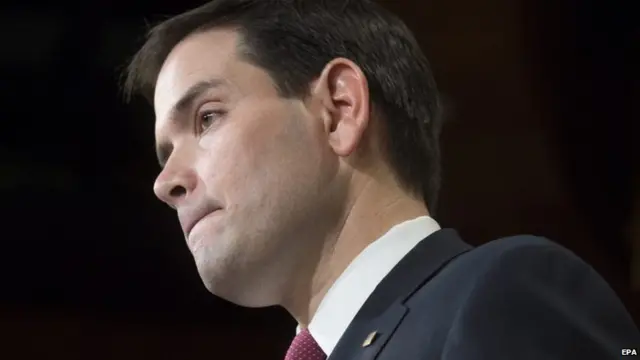 Image source, EPA
Image source, EPAWho are the Cuban Five? Four years ago, the BBC looked into the case of five Cubans imprisoned in Florida, three of whom are heading back to Cuba today,
 Kim Gittleson
Kim Gittleson
BBC business reporter, New York
Currently, US remittances to Cuba - often sent by Cuban Americans to family members - are estimated to be around $2bn a year. President Obama's action effectively quadruples the amount that US citizens can send to Cuba from $500 to $2,000.
That could be a big boon to the Cuban economy, and in particular, the fledgling private sector. It also solves a problem currently facing the Cuban economy, which needs at least $2.5bn in outside investment to maintain a steady growth rate. With Venezuela suffering as a result of plunging oil prices, this could solve the country's current economic crisis.
A dialogue between Cuba and the US was authorised in spring of 2013, senior administration officials say. Multiple meetings between the two nations took place in Canada as well as the Vatican.
In January the BBC spoke to the first group of Cuban exchange students in Miami in 50 years about life in Cuba versus life in Florida.
Bolstering telecommunications in Cuba is a priority for the Obama administration, with officials saying they will authorise the export of certain communication devices, software, hardware and services to the island nation.
US President Barack Obama told the nation the isolation policy had failed.
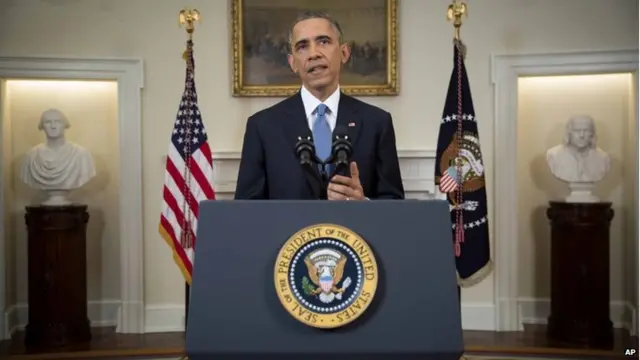 Image source, AP
Image source, APThe Daily Beast reports US officials at Guantanamo Bay, a small part of Cuba used as a US naval base, including the prison of al-Qaeda suspects, were taken aback by today's announcement, external.
The Obama administration's changes in Cuban policy now mean visitors to the island nation can bring up to $100 in Cuban cigars back to the US. But, officials note, the cigars must be for personal use and not re-sale.
New York Times' Binyamin Appelbaum tweets, external: "The arc of history is long but it bends toward Americans being able to use their credit cards in every country on earth."
Cubans watched their leader, Raul Castro, address the nation on Wednesday following the announcement of US policy changes.
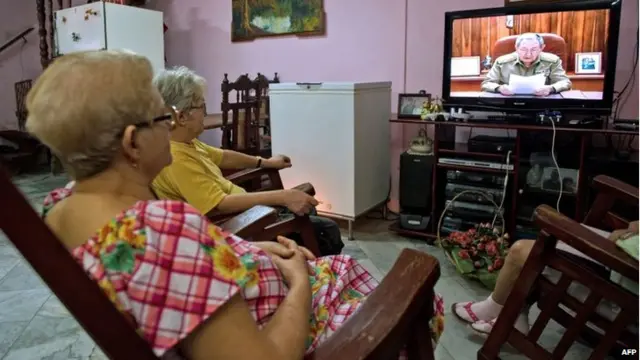 Image source, AFP
Image source, AFPCubans watched their leader, Raul Castro, address the nation on Wednesday following the announcement of US policy changes
David Botti, BBC News
Among those upset at the prisoner swap is Senator Robert Menendez, a Cuban-American and staunch anti-Castro politician
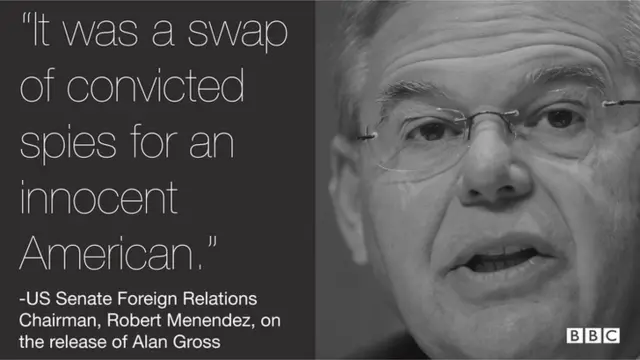
US President Barack Obama and Cuban President Raul Castro spoke on the phone on Tuesday for nearly an hour, a senior administration official says. They discussed potential for cooperation on a range of issues, including fighting the spread of Ebola and counter-terrorism.
At the meeting between US Secretary of State John Kerry and Alan Gross and his family, Mr Kerry expressed his "overwhelming happiness" Mr Gross is now free, a State Department spokeswoman says.
CNN's national security correspondent Jim Sciutto tweets, external :"@JohnKerry embraces #AlanGross as he lands at Andrews AFB on his return home from #Cuba"
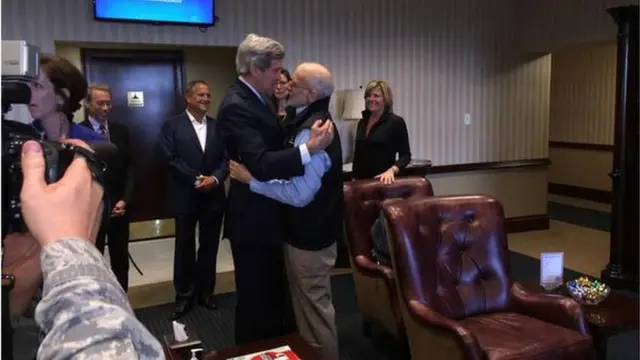 Image source, CNN
Image source, CNNDifferences remain between Cuba and the US in areas such as human rights and foreign policy, President Castro added.